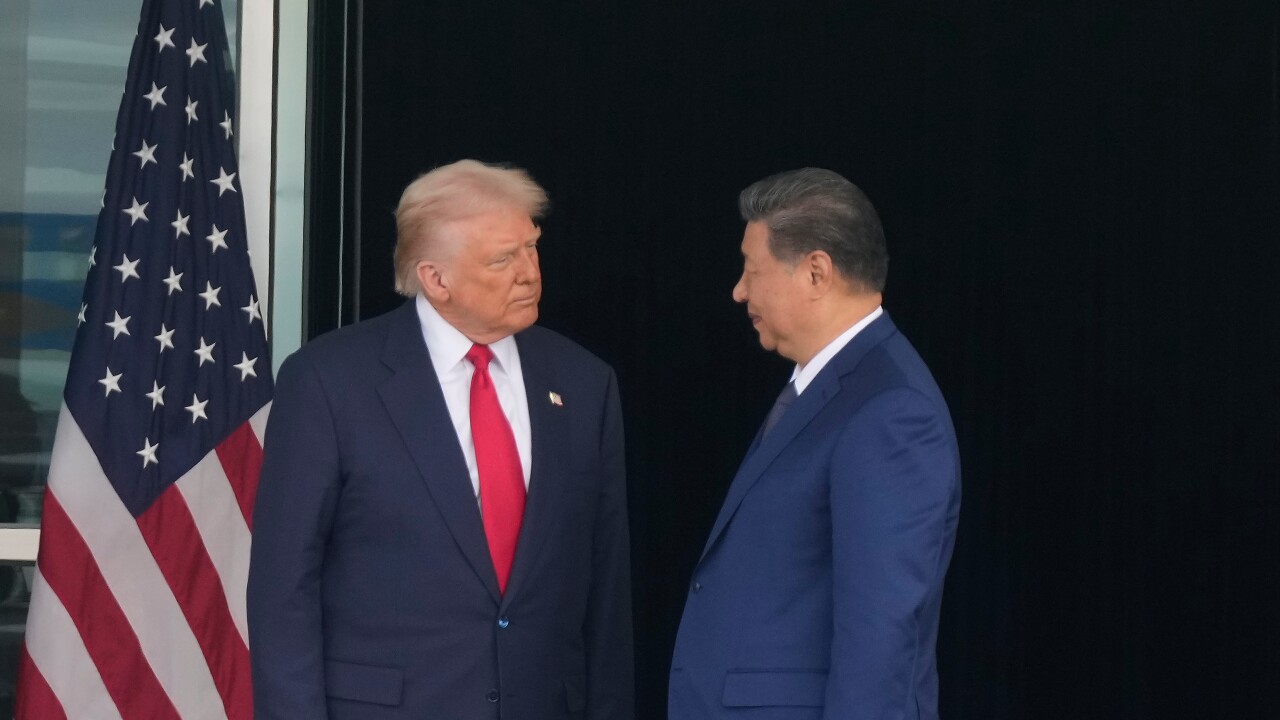President Donald Trump announced aboard Air Force One on Thursday that he will lower tariffs on China, reducing the tariff rate on goods entering the U.S. from 57% to 47%.
Trump said he increased tariffs on China earlier this year in retaliation for the nation not doing enough to stop the flow of fentanyl to the United States.
The Drug Enforcement Administration says China is the “primary source” of illegal fentanyl in the U.S.
Previously, the U.S. had placed a 37% reciprocal tariff on goods shipped from China. The Trump administration added a 20% tariff because of fentanyl. That additional tariff has now been reduced to 10%.
Thursday’s announcement came after Trump met with Chinese President Xi Jinping in South Korea. President Trump said he gave the meeting a "12" on a scale of 0-10.
“We agreed that he was going to work very hard to stop the flow,” Trump said. “You know, it’s a very complex subject because it’s used for lots of different reasons, including anesthetics and things, but he’s going to work very hard on it — precursors — and I think you’re going to see some real action taken.”
The meeting was considered high-stakes between the two leaders. Both countries have raw materials that the other wants.
China has large supplies of rare-earth materials used in making batteries and superconductors, while the U.S. has large amounts of soybeans.
China had placed restrictions on rare-earth materials from the U.S. in retaliation for tariffs. The Trump administration said some of those restrictions will be delayed for one year.
Watch related coverage: Montana Ag Network: How tariffs abroad are impacting farmers at home
The American Soybean Association had urged Trump to seek a trade deal with China. According to the association, China imports 60% of the world’s soybeans, but retaliatory tariffs made U.S. soybeans 20% more expensive than South American supplies, putting the U.S. at a disadvantage.
“We’re in agreement on so many elements—large amounts, tremendous amounts—of soybeans and other farm products are going to be purchased immediately,” Trump said.
A White House official told Scripps News that China has committed to purchasing 12 million metric tons of soybeans by January, and then at least 25 million metric tons annually through 2028.
“Today’s announcement is great news for American agriculture, and soybean farmers are extremely grateful to President Trump for making soybeans a priority in negotiations with China,” said Caleb Ragland, ASA President and soybean farmer from Magnolia, Kentucky. “This is a meaningful step forward to reestablishing a stable, long-term trading relationship that delivers results for farm families and future generations.”
Tariffs are paid by the company importing products into the U.S. Many economists believe companies pass the cost of tariffs onto consumers, raising prices.





